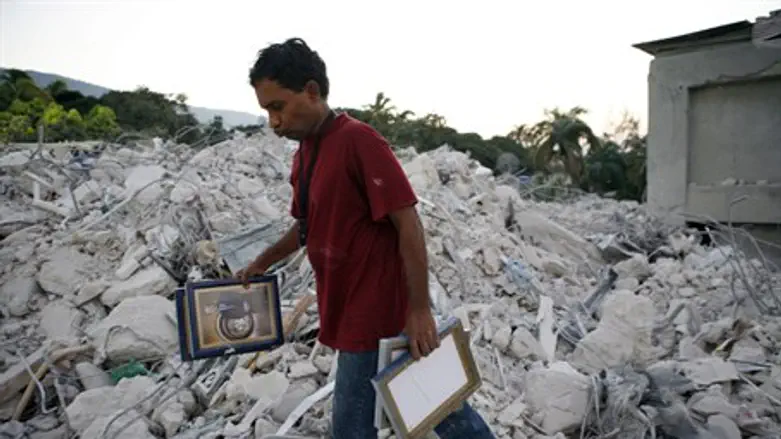
Dr. Ephraim Laor, who headed the National Steering Committee for Earthquake Preparedness, outlined on Sunday some steps that should be taken by Israelis to prepare themselves for a major earthquake that could hit Israel.
Laor spoke to Arutz Sheva just two weeks after he warned against Israel’s lack of preparedness to deal with an earthquake. He made the comments after the devastating 7.6-magnitude earthquake that hit Turkey. Experts have warned that Israel is also expected to be hit by a major earthquake.
He noted that the Israeli authorities are required strengthen schools against an earthquake, something for which a budget has been allocated. He said that parents should demand from school principals and officials in the local authorities that they strengthen the structures and purchase a warning alarm against earthquakes.
Laor noted that a warning system can give the entire school anywhere from five to thirty seconds to leave the classrooms and go to a secure or open area. Laor, who conducted private tests of such an alarm in his daughter’s school, discovered that 12 seconds are enough time for all students to reach a secure area.
Laor, who is currently holding courses on civilian preparedness for earthquakes, said that it is possible to learn how to prepare for an earthquake within just 24 hours.
He stressed the importance of each person having personal identification close by, including licenses, work permits and identity cards. These are crucial on the day after an earthquake, he said, when a person may have to approach government offices to request aid to which he may be entitled but must first prove his identity.
Another essential component of preparing for an earthquake is a first aid kit, as Laor said that it has been proven time and time again that it is the citizens, rather than emergency crews, who end up giving initial treatment to victims.
Along with the physical first aid, there is also psychological aid: Experts have said that 25 to 35% of the public may suffer a mental breakdown in an earthquake. Laor said that the emotional impact can be reduced if preparation takes place in advance.
Laor also noted the importance of having a supply of water and dry food that does not spoil quickly. He also pointed out the need to have a week and a half’s worth of medication for those who take any on a regular basis.
Unfortunately, he said, his preparatory course is not well-attended because “people think that an earthquake or tsunami will never hit Israel, and if such a disaster does happen then there is nothing to do. People think when it comes to personal safety the authorities will take care of everyone, but the reality is that a person can help himself better than anyone else can.”
